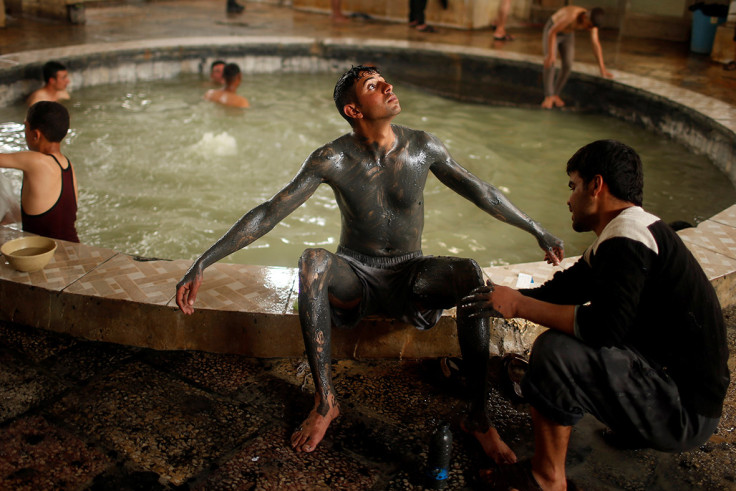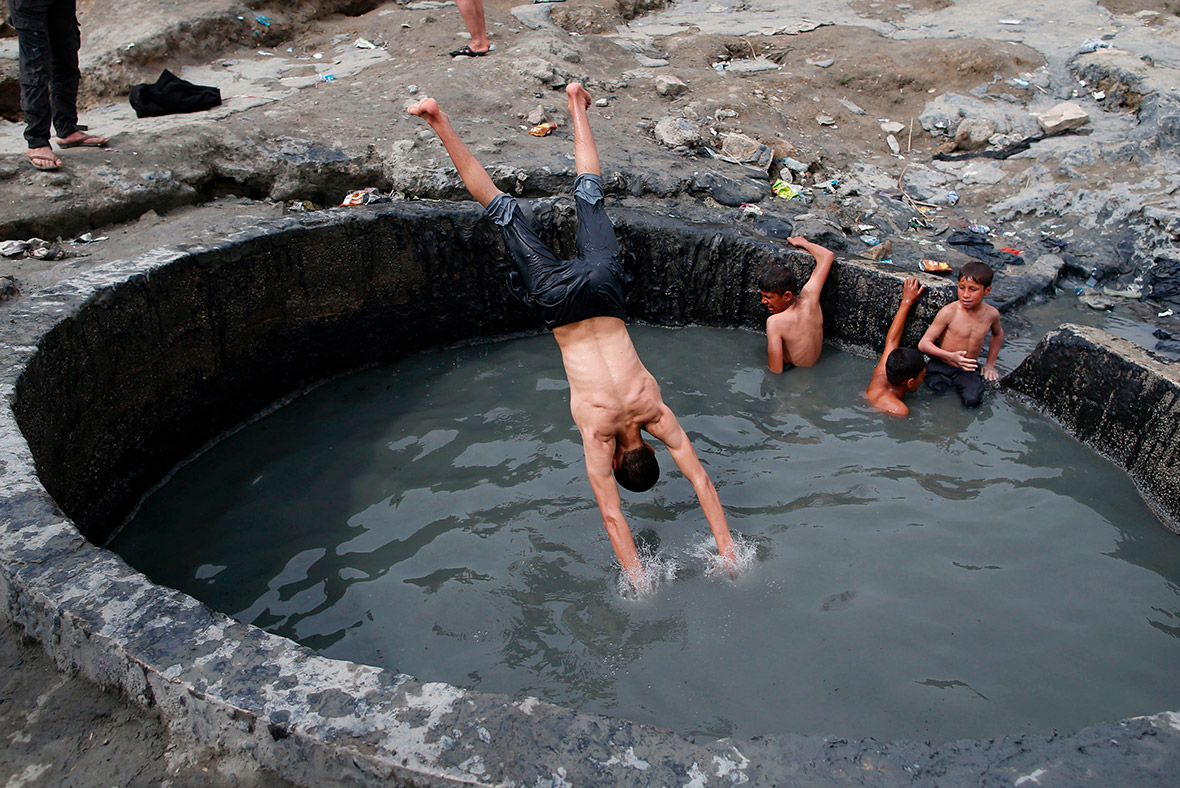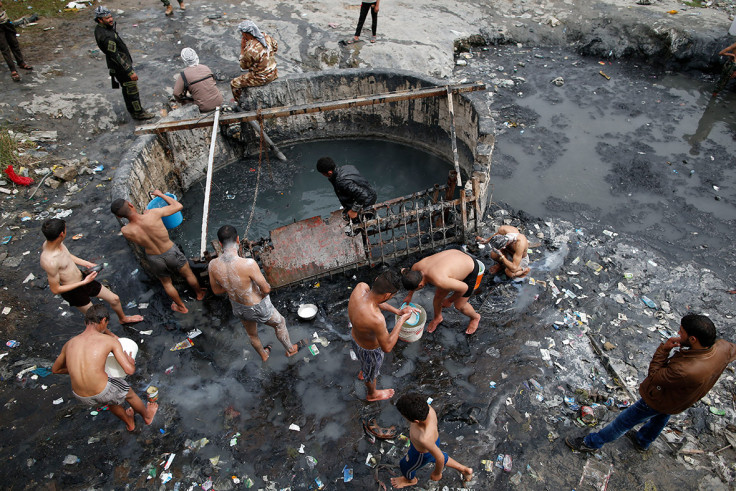While war against Isis rages in Mosul, Iraqis bathe in healing hot waters at nearby Hammam al-Alil spa
While some Iraqis are being pampered, thousands of others just a short distance away are trying to get into a crowded refugee camp.
Hammam al-Alil, a spa town south of Mosul, was once famous throughout Iraq for its healing hot waters. Opened in the 1980s, the spa used to be magnet for wellness tourists and rheumatism patients. Its elegant hotels are now shuttered or bombed out because Isis fighters used to live there.
But the spa is back in business after US-backed Iraqi forces retook the area from Isis. "We have some 200 spa visitors everyday, locals, soldiers," said Latif Mohammed, who was hired to help run the spa. "There are also displaced people, but many can't afford the 1,000 dinars (£0.67 or $0.86) entrance fee."

Residents have been flocking back since Isis was expelled from the town in early November, ending the days when bathers had to wear a tunic as part of the extremists' strict modesty code. "If you had only swimwear, Daesh would whip you," said Wael Abdullah, 12, before diving into an outdoor pool. Across the street is an indoor pool where locals and soldiers taking a day off from the front get a soapy massage.



"I come here three times a week," said 47-year-old Ali Qader, a retired soldier, after showering with water from a natural spring. "It's refreshing and good for your skin. The hisbah came checking that everyone had the right dress," he said, referring to the religious police that monitored everything from men's beards to women's veils.
"We used to have visitors from Baghdad, the south and even the Gulf, Kuwait, Saudi Arabia, but it needs refurbishing" said Mohammed. Upgrading the baths is probably the last priority for officials who also have to run one of the biggest camps for people fleeing the battle of Mosul.

While some Iraqis are soaking in warm springs or getting massages, thousands of others just a short distance away are living in crowded tents and having to beg for food. Two kilometres from the spa is the Hammam al-Alil refugee camp, which houses more than 30,000 of the people displaced by the campaign to dislodge Isis from Mosul.
Every five minutes or so, a bus pulls into the camp with more new arrivals. Up to 5,000 people come every day from the district or across the front lines around Mosul. While there's plenty of hot water at the spa, women in the tent city rise early to queue for the water truck that comes once a day.







More than 300,000 people have fled Mosul since the campaign to dislodge Isis from Iraq's second city began in October, the United Nations said. Iraqi forces, backed by a US-led coalition, have taken most districts of Mosul, the city where Isis leader Abu Bakr al-Baghdadi declared a caliphate nearly three years ago.
They are now battling to take the northwestern part from Isis but the civilian death toll has mounted in the densely populated Old City, where the militants are dug in amongst residents. More people are expected to flee the fighting and camps for the displaced north and east of Mosul are expanding.
© Copyright IBTimes 2025. All rights reserved.






















